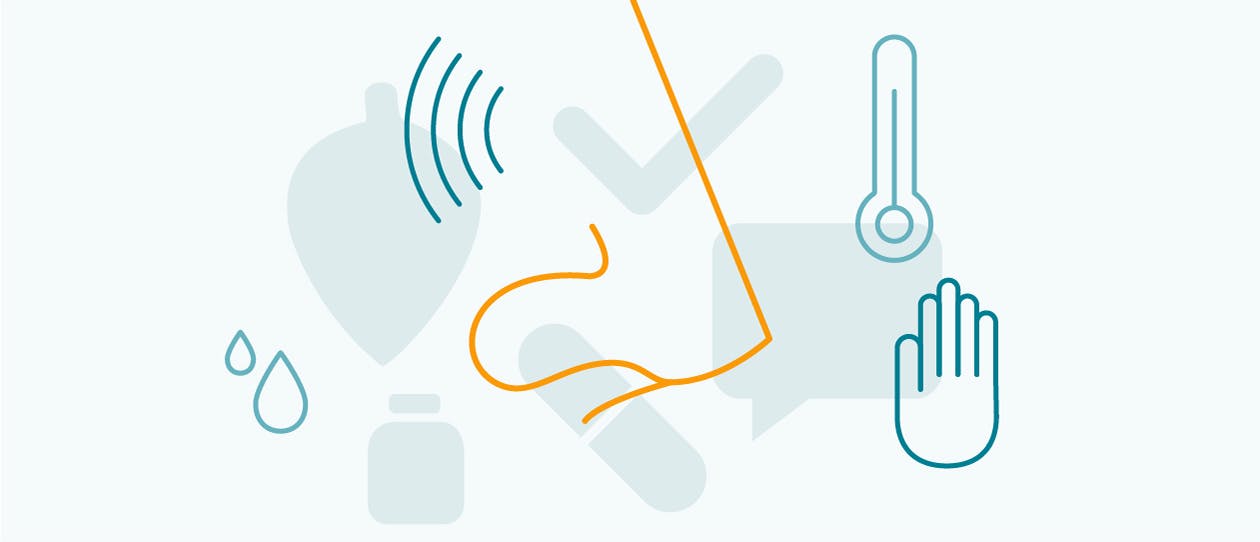
Snoring
1
About one in five people snore, with men more likely to be affected than women. Although it isn’t harmful, snoring is sometimes a symptom of underlying health problems, such as sleep apnoea.


The noise of snoring is caused by vibrations of the tissues at the back of the throat (the uvula and soft palate), as inhaled and exhaled air move past them.
In obstructive sleep apnoea, the airways momentarily become blocked, and breathing stops, only to re-start with a gasp a few seconds later as the body makes a concerted effort to obtain enough oxygen.
Factors that increase the likelihood of being a snorer or developing sleep apnoea include: